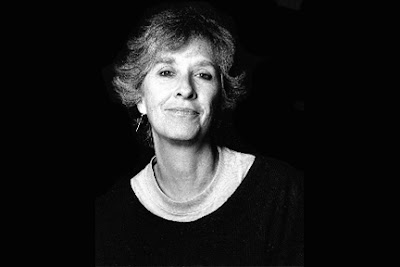 1) What the fuck is going on?
1) What the fuck is going on?
Change is happening – as usual. We’re getting caught up in religious wars. Desperation has made huge numbers of people turn away from reason toward blind faith. Because they can’t solve the problems that face them in the present, they’re turning back the clock. Pretty soon, we’ll have the crusades all over again. Words have taken on new meanings. Who used the word terrorist 10 years ago? When did liberal and feminist become dirty words? Now that we have the chance to communicate across the world, we’re forgetting how to use the language.
So, maybe that’s the perspective of someone “over 50” but it saddens me. On the other hand, at least in the arts, I see incredible energy and a growing awareness that we have a responsibility to talk about what the fuck is going on.
2) What does it mean to you to become a member of the Order of Canada for “contributions to the success of Toronto’s Tarragon Theatre, and for helping to foster a vibrant national theatre scene”?
Becoming a member of the Order of Canada happens to other people; it never occurred to me that it would happen to me. The fact that I knew some of the people who were members was enough. I pinch myself and, of course, like everyone else (of a certain age) who has received an honour, I wish my parents were around to witness it. “See, dad, even in the arts, you can be acknowledged.”
Working at Tarragon has been almost a total joy. I consider myself to be extremely fortunate to have worked so long at a theatre that has maintained its fundamental focus even as it grew and adapted to the changes going on around it. Luck has a lot to do with it and maybe an ability to see a good thing when it’s placed in your path. When I started at Tarragon – in 1972 – professional theatre as we know it today was still a work-in-progress. Just by being a part of it, you were “helping to foster a vibrant national theatre scene.”
3) What is one of your fondest memories of your time at the Tarragon?
There are so many fond memories and so many great productions. But, because it was produced over a longer period of time, I’ll say The Donnelly’s Trilogy. It was collaborative theatre at its finest, with a poet for a playwright (James Reaney) and a perfectionist for a director (Keith Turnbull) and a collection of dedicated artists. It was also the seventies and you worked hard and played hard. It was a fantastic experience.
4) Do you have any unifying theories that inform your approach to theatre management?
Not really. Openness, collaboration, honesty (in budgeting and reporting), promptness (with artists, agents and funders), think before you speak (especially if you intend to say no).
5) How important is it for smaller, independent theatre companies (without permanent spaces) to have a General Manager?
I think small companies can ride out the first couple of years on passion and enthusiasm and then, reality hits and no one finds administration fun anymore. That’s when you need a GM or a bookkeeper, or an eager and talented person who is willing to learn on the job.
6) When you look at the varied landscape of Canadian theate, what kinds of stories do contemporary artists seem to consistently neglect telling?
A couple of years ago, I would have said that we weren’t taking a political stand on anything, but that’s changed. There are now a number of companies/artists talking about the big world issues. There’s room for more. Now we have to tackle some of the issues closer to home. In Toronto, we could start with city hall politics, the perceived violence in the schools, the growth of ethnic villages within the city, Toronto’s role in the country.
7) Do you think conservative, right-wing politics are somehow fundamentally at odds with the arts community?
Yes, absolutely.
8) Who are some of your favourite Canadian arts administrators?
Nancy Webster, Jane Marsland, Colleen Blake, Peter Zednik, Cherry Karpyshin, for starters and I know there are many more.
9) How important is it for younger members of the theatre community to establish a mentorship with a senior-level peer in their field?
Very important. It’s just as important for a senior-level artist/administrator to establish a relationship with younger members of the theatre community. We teach (in the broad sense of that word) each other. The exchange is what’s important and everyone comes away from a good relationship with some new knowledge and excitement about what they’re trying to achieve.
10) If you could change just one thing about theatre in Canada, what would it be?
Can’t stop at one.
No more apologizing (internally or externally) for being Canadian. ALL of our critics would feel passionately about the theatre, care about the future of the arts, be knowledgeable about the arts and have a talent for the written word. No more *** in print. We would have an abundance of excellent directors. More playwrights would experiment with style; more playwrights would tackle political topics. More people would take a chance on live theatre and love it.
“It’s just as important for a senior-level artist/administrator to establish a relationship with younger members of the theatre community.”
Reading statements like this make it a lot easier to feel good about calling up senior-level peers in our community and asking for help, and without feeling like we’re just being a nuisance.
Thanks Mallory!
“Can’t stop at one”! Ian, why aren’t we going into the theatre slogan t-shirt business?
I love how Mallory responds to the question of whether or not she has a unifying theory on theatre mgmt by saying “not really”, and then drops a pristine one. Awesome.